COVID-19
Filter by...
-
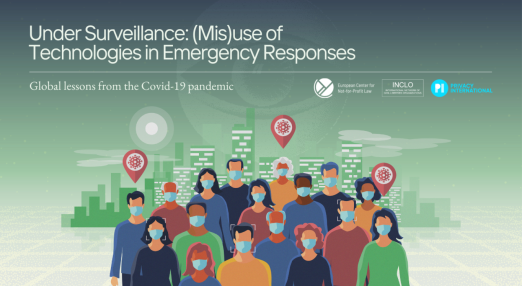
Under surveillance: (mis)use of technologies in emergency responses
In the months following the beginning of the COVID-19 pandemic, more than half the world’s countries enacted emergency measures. Within this broader context, we have seen a rapid scaling up of governments’ use of technologies to enable widespread surveillance. How has this impacted civil society groups globally?
Read more
-

2021: Looking back at digital rights in the year of resilience
We started 2021, hoping to leave the tremendously challenging year of 2020 behind. The Covid-19 pandemic has had a devastating impact on our societies, causing unprecedented harm to people and economies. If 2020 was the year of the pandemic shock, 2021 was the year of resilience. We had to learn to live in a constant uncertainty of what it would take to keep defending human rights: Could we work and walk down the streets without being constantly surveilled? Would efforts to tackle disinformation distort legitimate content, or would they bring down Big Tech instead? Will 2022 be 2021 2.0?
Read more
-
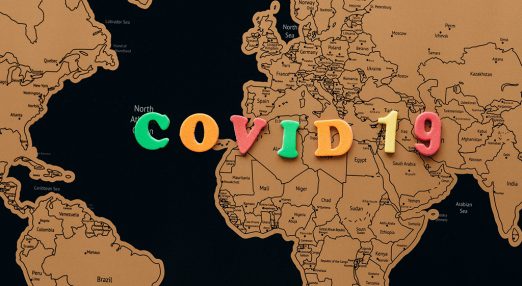
Five reasons to claim victory on the EU Digital COVID Certificate
On 8 June 2021, the European Parliament voted on the interinstitutional compromise text on the regulation(s) on the EU Digital COVID Certificate (EU DCC, also known as the Digital Green Certificate and the European Green Pass). The proposed legislation regulates the “framework for the issuance, verification and acceptance of interoperable certificates on vaccination, testing and recovery” with aim of facilitating free movement during the COVID-19 pandemic.
Read more
-

EU Parliament adopts the Covid Pass: risks for data protection and new forms of discrimination
At first glance, teh Digital Green Certificate may sound interesting, but upon further reflection, it quickly becomes clear that the proposed system has the potential to divide society and expose certificate holders to far-reaching surveillance by the authorities that issue the documents. Even worse, it exacerbates inequalities and increases social exclusion, shares EDRi's member epicenter.works.
Read more
-
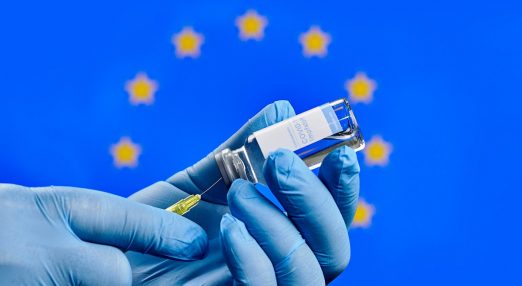
EU: New “ad-hoc working group” on vaccine passports starts work – in secret
EDRi's member Statewatch shares that discussions amongst EU member states on how to approach plans for digital vaccination certificates are taking place in a new "ad-hoc working group", a format that is not likely to foster transparency - particularly given that the group has said it will not be keeping "minutes as such".
Read more
-

Why the electronic green vaccination certificate creates new problems instead of solving them
The National Council in Austria passed a legal basis for the electronic immunity certificate project within two days, skipping any kind of review procedure. The digital passes are not a ticket to a normal life, vaccination is. So, special attention should be paid to maintaining the trust of people and the voluntary nature of vaccination, ensuring that people's rights to privacy and freedom of choice are respected. EDRi's member epicenter.works explains what are the concerns with the deployment of green certificates and suggests alternatives to this project.
Read more
-

Looking back at digital rights in the era of a surveillance pandemic
2020 started as a year to build momentum to tackle various digital rights issues, including mass surveillance and freedom of expression online. Needless to say, the global pandemic disrupted not only these efforts but also our health, personal relations, basic survival needs and ways to organise around human rights. After 9 months of living and working in a pandemic, we look back at what we achieved and the ways forward from here.
Read more
-

How to create an excellent process to deliver a worthless contact-tracing app
As it became clear that Covid-19 would not spare Europe, contact-tracing apps quickly surfaced across the continent as the tech-solutionist quick fix. The Netherlands was no exception.
Read more
-
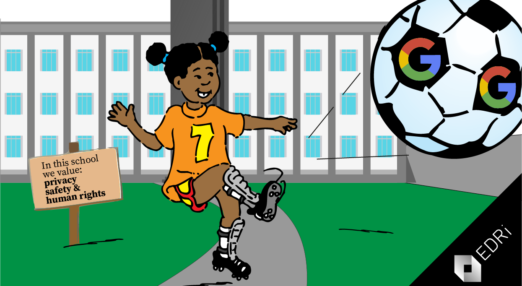
Spain: Catalan government agrees to improve privacy in schools
The Catalan Department of Education has signed an agreement accepting the plan proposed by Xnet, EDRi member from Spain, titled “Privacy and Democratic Digitization of Educational Centers,” to guarantee the privacy of data and the democratic digitization of schools. The plan foresees the creation of a software-pack and protocols that ensure the educational establishments have alternatives to what until now seemed the only option: the technological dependence on Google and its attached elements, with worrying consequences on individual data.
Read more
-
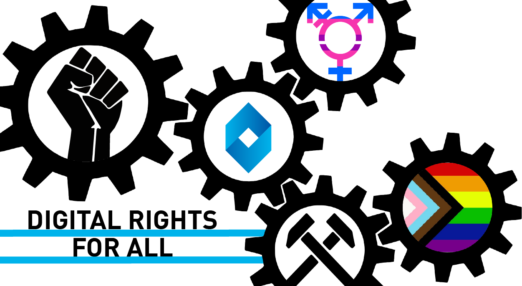
Digital rights for all
In this article we set out the background to EDRis’ work on anti-discrimination in the digital age. Here we take the first step to explore anti-discrimination as a digital rights issue, and then, what can EDRi do about it? The project is motivated by the need to recognise how oppression, discrimination and inequality impact the enjoyment of digital rights, and to live up to our commitment to uphold the digital rights of all.
Read more
-
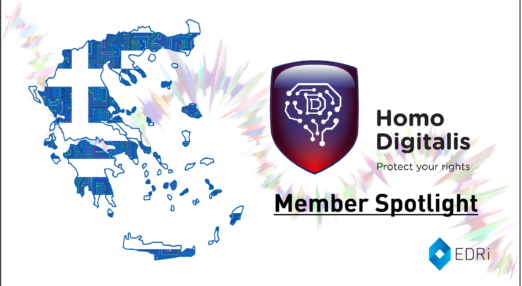
COVID-Tech: COVID-19 opens the way for the use of police drones in Greece
In EDRi’s series on COVID-19, COVIDTech, we explore the critical principles for protecting fundamental rights while curtailing the spread of the virus, as outlined in the EDRi network’s statement on the pandemic.
Read more
-

COVID-Tech: the sinister consequences of immunity passports
In EDRi’s series on COVID-19, COVIDTech, we explore the critical principles for protecting fundamental rights while curtailing the spread of the virus, as outlined in the EDRi network’s statement on the pandemic.
Read more
